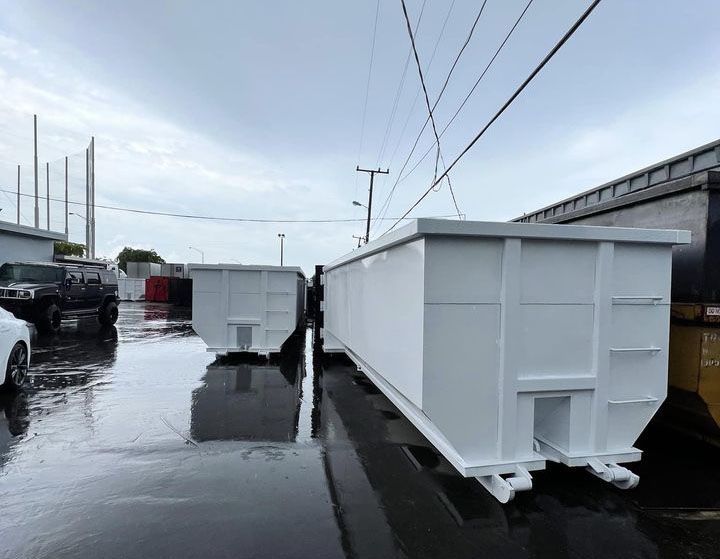
Dumpsters are essential components of waste management systems as they provide a practical and effective means of disposing of a wide range of refuse materials. For effective waste disposal, it is critical to select the appropriate dumpster measurement, comprehend the associated costs, and assess convenience factors, whether undertaking large-scale construction projects or residential cleanouts.
Dumpster Sizes:
Each dumpster capacity is specifically engineered to accommodate a unique volume of waste. Constant dimensions consist of 10, 20, 30, and 40 cubic yards. It is essential to comprehend the dumpsters’ capacities and dimensions in order to match the container to the particular requirements of a given undertaking.
10 cubic yards: Appropriate for minor renovations or garage cleanouts, among other modest residential projects. Approximately three pickup truck loads of detritus can be accommodated.
20 Cubic Yards: A versatile option for medium-sized projects, like kitchen or bathroom renovations. It accommodates around six pickup truck loads of waste.
30 Cubic Yards: Ideal for larger projects, including commercial construction or major home renovations. This size can handle approximately nine pickup truck loads of debris.
40 Cubic Yards: Reserved for substantial projects, such as large-scale construction or demolition. It can hold about twelve pickup truck loads of waste.
Cost Factors to Consider:
Costs for dumpster rental are contingent on a number of variables, such as dumpster size, duration, location, and the sort of waste being disposed of. Although smaller receptacles typically entail reduced rental fees, it is crucial to consider the project’s specifications when weighing cost against size.
Size versus Cost: Although larger dumpsters may appear to be more expensive, they can be more economical in the long run for large-scale undertakings due to the decreased frequency of pickups and drop-offs.
Duration: Dumpster rental costs typically cover a specific rental period, with additional fees for exceeding this duration. Planning the project timeline accurately is crucial to avoid unnecessary expenses.
Location: Geographic location can influence dumpster rental prices due to varying disposal fees, transportation costs, and local regulations.
Type of Waste: Certain types of waste, such as hazardous waste, may incur additional disposal fees. Understanding the waste stream is vital for accurate cost estimation.

Convenience Considerations:
The degree of convenience provided by dumpsters significantly influences the efficacy and triumph of refuse management as a whole. There are multiple elements that contribute to the ease of dumpster utilization:
By positioning the dumpster in a location that is conveniently accessible to employees, the time and effort needed for refuse disposal can be significantly reduced.
A comprehensive comprehension of local regulations and the acquisition of requisite permits are imperative for guaranteeing a seamless and compliant dumpster rental procedure. Noncompliance could lead to monetary penalties or extensions of the project schedule.
Ensuring Timely Pickup and Delivery: The dumpster rental company must provide dependable and punctual pickup and delivery services in order to optimize the efficiency of the project. Delays may impede advancements and result in supplementary expenditures.
Environmental Considerations: Recycling is an integral component of responsible waste disposal. Selecting a dumpster rental company that adheres to environmentally responsible practices is consistent with objectives related to sustainable waste management.
Within the domain of refuse management, Dumpster Dynamics possesses an intricate comprehension of dimensions, expenses, and practicality. Placing convenience as a priority and selecting the appropriate receptacle size and cost all contribute to a streamlined waste disposal procedure. A successful and environmentally responsible waste management strategy is contingent upon the careful consideration of dumpster dynamics, regardless of whether one is supervising a large-scale construction endeavor or a small residential undertaking. As we commemorate the first year of Dumpster Dynamics’ investigation, it becomes evident that the optimal refuse disposal in a variety of contexts hinges on the harmonious interaction of size, cost, and convenience.






